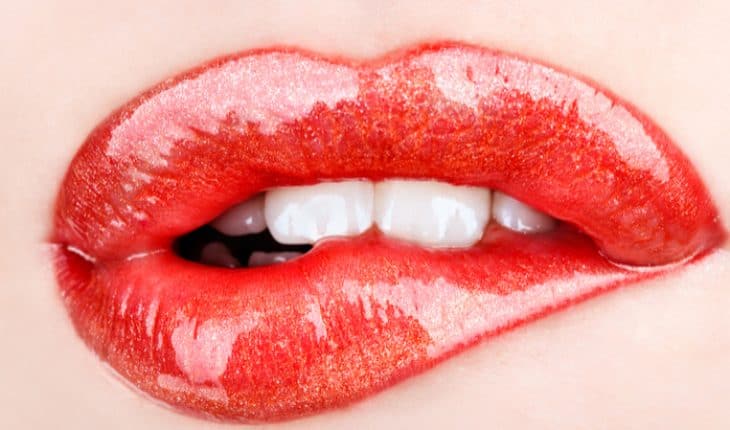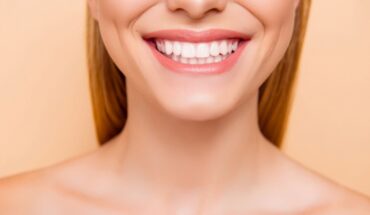World Oral Health Day: Top tips for a smile to be proud of: More than one-in-two (51%) UK adults suffer from anxiety or are self-conscious about the health of their smile, according to recent research from the Oral Health Foundation.
Common oral diseases like tooth decay and gum disease are major health concerns and negatively impact people throughout their lives. The charity says they often lead to pain and discomfort, social isolation and loss of self-confidence, and they are often linked to other serious health issues.
To coincide with Sunday’s (20 March) World Oral Health Day, the Oral Health Foundation believes there is no reason to suffer. The charity wants to reassure everyone that most oral health conditions are largely preventable and can be treated in their early stages. This year, we want to inspire change by focusing on the importance of oral health for your happiness and well-being, because good oral health has a positive impact on your general health, well-being and quality of life. And that is something worth taking action for.
To help you get a smile to be proud of for World Oral Health Day, chief executive of the Oral Health Foundation, Dr Nigel Carter, has compiled his list of top tips for better oral health.
Brushing your teeth with a fluoride toothpaste
Brushing your teeth for two minutes last thing at night and at one other time during the day with a fluoride toothpaste is the most important step you can take for a healthy smile.
This will keep your mouth clean and free from plaque and can help prevent tooth decay.
Dr Nigel Carter says: “Twice daily toothbrushing is the cornerstone to having good oral health because it removes plaque. If plaque is not removed and is allowed to build up, it can cause conditions like tooth decay and gum disease.
“Brushing only once a day can increase the chances of developing tooth decay by up to a third, so setting aside time for the second brush is really important.”
You should also change your toothbrush every two-to-three months or when the bristles begin to lose their shape.
Using an electric toothbrush
Using an electric toothbrush can really help keep your mouth in pristine condition. It is very easy to not bush as thoroughly as we really should. Using a good electric toothbrush can help reduce plaque and stop tartar build up along the gum line.
Dr Carter believes as the science behind the advantages of electric toothbrushes mounts, the decision whether to invest in one becomes much easier.
“Electric toothbrushes, especially those with heads that rotate in both directions, or ‘oscillating’ heads, are more effective at removing plaque than a manual brush,” adds Dr Carter. “This helps keep tooth decay and gum disease at bay.
“As technology has developed, the cost of having an electric toothbrush becomes even more affordable, with brushes available from not much more than £10. At the other end of the spectrum there are top end power brushes which have all the latest innovations such as artificial intelligence.
“Given the advantages of electric toothbrushes, having one is an excellent investment and could really benefit the health of your mouth.”
Cleaning in between your teeth
While brushing twice a day with a fluoride toothpaste is essential for a good oral health routine, studies1 show that it’s also important to clean in between your teeth.
Despite this, as few as one-in-five (22%) UK adults clean in between their teeth regularly.
Dr Carter says: “Using interdental brushes or floss once a day, ideally before toothbrushing, plays a big part when it comes to keeping your teeth and gums healthy.
“Brushing alone only cleans three of the five surfaces of your teeth, so cleaning between them before you pick up our toothbrush is hugely beneficial. It helps to prevent gum disease by removing plaque from areas the toothbrush alone cannot reach.”
Your toothbrush can only clean so much and this could lead to a build-up of plaque and cause the gums to become inflamed and bleed. Cleaning between your teeth helps to prevent this and is a great way to ensure your mouth gets the best possible care this World Oral Health Day.
Using a mouthwash every day
Adding a daily swish of mouthwash to your oral health routine can do wonders for the health of your mouth. Research shows those who use mouthwash alongside regular toothbrushing are far more likely to have mouths that are plaque free.
“Mouthwashes are a great addition to any good oral hygiene routine,” adds Dr Carter. “They contain an antibacterial agent that helps reduce plaque and prevent gum disease. Many will also contain fluoride to protect you against tooth decay.
“There are many different types of mouthwash available, effective at treating a whole range of conditions from gum infections and inflammation to dry mouth to tooth sensitivity. The best thing you can do is speak with your dentist about which mouthwash is right for you.”
According to a recent poll by the charity, as many as half (53%) of UK adults have now added mouthwash to their daily routine.
Keeping a healthy mouth while on the go
In the middle of the day, in between the morning and night time brush, your teeth are under constant attack by acids in the mouth. This is caused by the sugars in your food and drink together with bacterial plaque and will slowly dissolve away the enamel and dentine of the tooth, making a hole or ‘cavity’.
Protecting your teeth during this time is essential. Luckily, you have a natural form of immunity.
“The salvia in your mouth will help neutralise the acidity created by consuming foods and drinks containing sugar,” adds Dr Carter. “Maintaining a healthy flow of salvia is essential and can help you avoid common oral health problems like tooth decay.
“Chewing sugar free gum in between meals can help maintain a healthy level of salvia in your mouth. This is simple but effective way of helping you maintain a healthy mouth, until you can next brush your teeth.”
Check in with your dental team
While good oral health is in your hands through a good daily routine, visiting a dentist is an essential step in keeping disease at bay. Your dental team can spot and treat any signs of disease in the early stages and give you personalised advice based on your mouth.
“Visiting your dental practice regularly is a great way to give your mouth that oral health MOT. The earlier any problems are identified, the easier, quicker and cheaper any form of treatment will be.
“During your routine appointment, your dentist will also check your mouth for signs of cancer. A dental visit is about more than your teeth and gums – it could also be life-saving.”
If you have any questions or concerns about your oral health in between dental visits, you can contact the Oral Health Foundation’s Dental Helpline. The charity’s team of dental experts can offer you advice and reassurance on the health of your mouth. Call the Dental Helpline on 01788 539 780 or email [email protected].
Join in World Oral Health Day by taking part in the #MouthProudChallenge. Download a filter on Instagram or get creative with your own frame from their website. Take part by visiting www.worldoralhealthday.org/mouthproudchallenge.
- Combination of drugs could prevent thousands of heart attacks - 21st April 2025
- UQ Study Links Poor Teen Diets to Heavy Social Media Use - 21st April 2025
- Gut microbiome could delay onset of type 1 diabetes - 3rd April 2025






